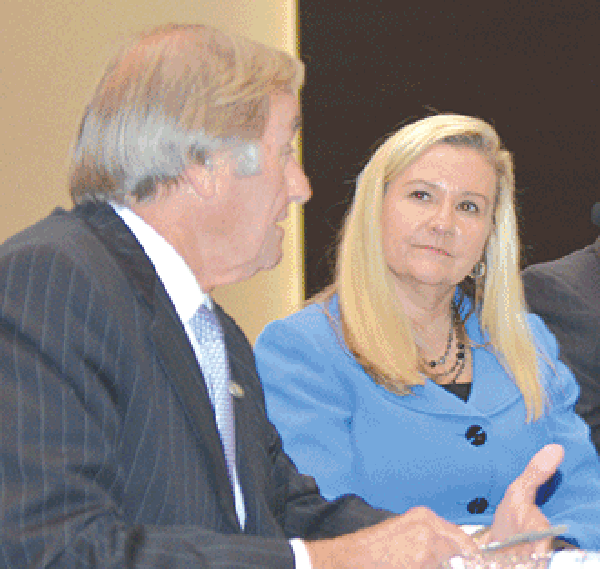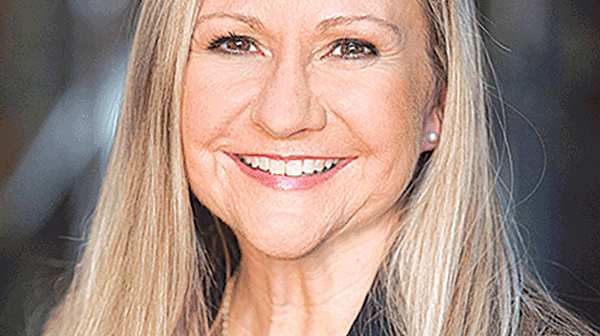
A coal ash bill that went through a number of changes in the final weeks of the recently-concluded General Assembly’s general session is
SB1355 was approved 37-2 in the state Senate and 96-2 in the Assembly. It requires Dominion Energy to excavate some 28 million cubic yards of coal ash at four sites in the state – including Chesterfield Power Station – and either recycle it or place it in lined landfills over the next 15 years.
State Sen. Amanda Chase, R-Chesterfield, and Sen. Scott Surovell, D-Mt. Vernon, have been pushing for a coal ash remedy since 2016, Chase said. The remedy was a long time coming, she said, noting that the coal ash had gone “basically unnoticed the past 50 years.”
“I have mixed reactions,” Chase said, adding that “overall, it’s a win. I just want to make sure it’s done right.” Chase said that Sen. Frank Wagner, R-Virginia Beach, “hijacked” her coal ash bill – SB1533 – in a Senate subcommittee on Jan. 30. “I was not very happy,” she said.
Two of three amendments that Chase promoted were not included in the final bill, she said. These included a guarantee that Henricus Historical Park and Dutch Gap Conservation Area would not be closed during the 15-year excavation process and a requirement that Dominion
Chase said that Henricus is “very unusual” in that it is a “park embedded in a power plant.”
In a Jan. 24
Chase said the Chesterfield County Board of Supervisors and Dominion are in favor of a memorandum of understanding that would result in Henricus and Dutch Gap being kept open. The memorandum has not yet been agreed to, however. Chase said a county official told her that it might not be ready until April.
“I’m not happy with an MOU,” Chase told WCVE’s NPR reporter Roberto Roldan Feb. 13. “I want something that’s in the law. It’s more permanent than an MOU.”
Dominion spokesman Dan Genest said the utility will not close access to the park and an adjacent boat ramp. “We intend to be a good neighbor to these two very popular sites,” he said.
When asked if Dominion would build a brick kiln at the Chesterfield Power Station and recycle the coal ash on site or ship it by barge or rail, Genest said shipping it on a barge is not practical and noted that it would cost an estimated $4.6 million to ship it via rail. “We will be developing our plans for closing the ash ponds and moving the ash to lined landfills over the next few months,” he said in an email.
As for whether Dominion would charge customers no more than $5 a month, Genest said that, ultimately, the State Corporation Commission would establish rates for customers.
One of Chase’s amendments was kept in the bill. It says that if Dominion is found liable for a violation of state or federal law, the company has to pay for any fines or civil penalties that ensue, not its customers.
The bill requires Dominion to make biennial reports beginning Oct. 1, 2022, until
House Speaker Kirk Cox, R-Colonial Heights, had a provision included that restricts coal ash trucks from being used on highways in Chesterfield.
The James River Association is pleased with the bill. “This action by the General Assembly puts public health first by removing coal ash from leaking, unlined pits along Virginia’s riverbanks that fail to meet modern standards,” James Riverkeeper Jamie Brunkow said. “We applaud the patrons of both bills and all of Virginia’s leaders for putting the commonwealth on the path toward clean rivers and healthy communities. And we especially thank our champions – Sens. Chase and Surovell and Del. Jennifer Carroll Foy, D-Woodbridge – who, for years, have remained steadfast in protecting their constituents from the dangers of coal ash pollution.”
Brunkow noted that the bill requires that at least 25 percent, or 6.8 million cubic yards, of the coal
“The legislation doesn’t specify where recycling will occur, nor does it prevent recycling of Chesterfield’s ash,” Brunkow said. “Dominion will determine specifics of how ash will be handled at each site and submit those plans for review and approval by the Department of Environmental Quality. That review process will unfold over the next year and includes the receiving of public input before Dominion can acquire closure or solid waste permits. On-site landfills are not required by the
“As site-specific closure plans are formalized, the JRA will remain engaged and continue to advocate for permits that are fully protective of the river over the long term,” Brunkow said.



2 Comments
Onsite waterfront unencapsulated coal ash land fill at 3 of the 4 facilities is an environmental defeat. Saves money, but may be penny wise and pound foolish when the hundred year flood or hurricane or tornado comes.
This bill is corporate welfare. It provides a $3B financial guarantee to Dominion at the expense of ratepayers. Excavation and lining will occur with or without this bill, because Dominion has already confessed to the EPA of both illegal toxicity levels and illegal proximity to the aquifer.
Dominion reported close for cause violations under the October 19, 2015 EPA Hazardous and Solid Waste Management System; Disposal of Coal Combustion Residuals from Electric Utilities; Final Rule. See 40 CFR Section 257.90 – 257.98 regarding exceeding ground water protection standards. See 40 CFR Section 257.60 regarding aquifer unsafe separation standards.
Mr. Stern, your comment is specious. The coal ash at Dutch Gap has been there for 70 years and no major catastrophe or leaching has ever been found. In fact, cap in place approved by DEQ would have worked just fine as it has in 100 other sites in the state for landfills which are far more toxic. I am astounded at the total absence of science applied by those opposing cap in place. I could go on but what’s the point…someone like Ms Chase who has about as much science knowledge as a rock has persuaded others through fear to spend a wad of ratepayer money on “maybe.” Unwise but I will fight no more forever. I obviously disagree with your comment, Mr. Stern. Dominion is not getting welfare they are just passing the cost on to you and me which the bill allows.